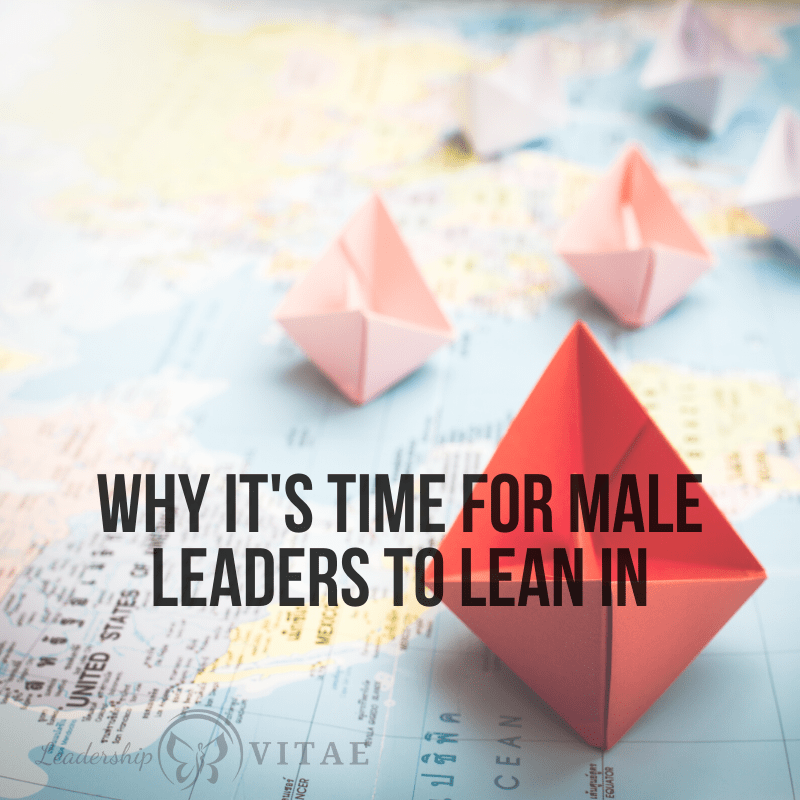
The year 2020 will go down in history books. Every month has had at least one major event, sometimes many, that would stand out in a good year. That we’ve had so much disruption in the first six months – don’t even get me started on murder hornets – has been overwhelming more than a few times.
Well, we are at the start of July and we have another disaster looming in August.
Why am I bringing this up now? Maybe we could relax in July. Rest a bit before the next thing hits.
The signs of are here and we have an opportunity to intercede. But we need male leaders to be the ones to do it.
Disproportionate impact
This week, I had my first foray into a restaurant in months. A friend and I met up for a socially distanced dinner at an outdoor courtyard.
We are both single parents, so we got to discussing the challenges of navigating parenting, work, and homeschooling.
At one point, he said “it’s so frustrating that no one considers I’m a single dad. I can’t be in meetings all day without breaks to get my kids lunch, or work all weekend. It’s exhausting to have to keep reminding people.”
As a single parent, I’m totally in solidarity here. Yes, it’s exhausting. There is no one else around and there’s an assumption that “someone else” is caring for the children while we are working.
I’ve been in my current role for nearly two years. It wasn’t until the frantic migration to work from home for COVID, when so may were trying to balance work and childcare, that conversations became somewhat normalized about those challenges. For the first time, there was open discourse about “working while parenting.”
Why? Well, the reality is that most leaders are still male, and the work culture is often designed around an assumption of being “untethered.”
It’s not universal, of course, but data shows us that childcare impacts are predominately felt by women. The number of single moms is higher than single dads. Only 20% of the population has a stay at home parent (which are mostly women). If both are working, the moms pick up the lion’s share of the childcare, even if they have a higher paying or more demanding job.
It may be different in your house. If so, that’s awesome. But the reality is that in a majority of American households, women shoulder the burden of childcare responsibilities.
Pending disaster
Why does this matter? Because families are about to have to make a choice. Schools across the country will be in session again starting next month, and it won’t be business as usual.
It was one thing to try and muscle through 3 months, thinking kids would be back in school in the fall. Now we know there’s a potential for an entire school year fully or partially remote.
Companies have been (mostly) flexible, likely for the same reason. Thinking it was temporary.
Indications of the disaster ahead are already starting to pop up…
Recently, Florida State University announced that parents could not work remote and care for their children. Who will be most likely impacted by that decision?
If a household has two incomes, one parent may have to decide to stay home and manage homeschooling and care. Which one is more likely?
What opportunity do single parents, most of whom are women, have to both care for their children and work? Given that households lead by single mothers are 5x more likely to live in poverty, that number will rise as those mothers have to make a decision between financial stability and their children’s well-being.
A call to action
When my friend mentioned his frustration, I challenged him to think of it differently:
Rather than be exhausted, think of the power you have as a male leader. When you speak up about the need to care for your family, you’re not just advocating for yourself. You’re also speaking up on behalf of all women caregivers. And frankly, we could use the allyship.
I shared the story of Sheryl Sandberg from Lean In. It wasn’t until she was pregnant, walking through the parking lot, that she understood the plight of other pregnant women and advocated for parking closer to the building.
My friend has a unique opportunity to use his voice to share an experience that many male leaders simply don’t have. He can use his power, and seat at a table where there are few women, to create awareness and drive change.
It shouldn’t take having a woman in leadership – or one who’s pregnant, a single mom, or caring for an elderly parent – to focus on leading the whole person. To create an environment that prioritizes finding creative ways for everyone contribute without assuming work is the only – or most important – responsibility for employees.
This is a call to action to all male leaders. You have a choice in how you lead your organizations in the coming weeks and months.
Will you create an environment that allows women to keep their jobs and provide for their families? Maintain their career and earning potential, without the significant hit that occurs when women step out of the workforce to care for their child(ren)?
If you are a dad, I have a further challenge for you. Will you normalize conversations at work about taking breaks to feed the kids or address homeschooling needs? Model what it looks like to be actively engaged at home and at work, so the burden is not disproportionately placed on women to advocate for themselves?
The business case
We are on the verge of women being pushed back decades. If that happens, companies will suffer since data shows that more diverse leadership teams perform better. Companies that focus on DEI/D&I outperform those that don’t. You can’t be very diverse if women are forced to opt out of the workforce.
For those women who are able to remain in the workforce, we will vote with our feet and choose to work places that consider us. Employees are watching, even if company policy and leader behaviors do not impact us directly.
Customers are also watching. Women have either direct control over or influence a majority of household spending. It is not just your female employees you need to be mindful of. Your female consumers can choose to spend their dollars elsewhere.
As can be seen by the article on FSU’s announcement, and several attempts to backtrack, clarify, and modify, it’s not just your employees or consumers who are watching. The world is watching. Every choice will become public. Not just policy, but individual experiences as well.
Helping women navigate the coming months is the good human thing to do, but it also makes good business sense. Choose wisely.









2 Responses
Exquisite timing, Kristin with excellent content. Good to see you writing so clearly.
Thank you Carlotta! It was so interesting to get a single dad’s perspective on what’s going on, and how shifting perspective could help so many of us navigate the stormy waters ahead. Appreciate your support, as always.